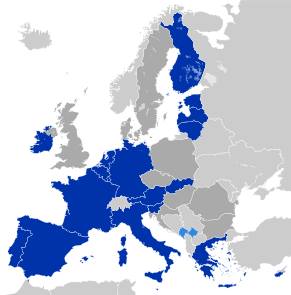Katarzyna Stachyra
Last month European Commission presented its communication titled ‘A Digital Single Market Strategy for Europe’[1]. Commissioner, who is responsible for this issue, is named Andrus Ansip. Introducing the next step in European integration is one of the most important priorities of the Commission. According to researches[2], only less than a half of EU citizens are confident during buying goods on-line from another EU state. This may be caused by many factors, for instance differences in shipping costs, standards of consumer protection – questions concerning returns policy or guarantees, doubts with currency exchange (in states which euro is not in use, such as Denmark or Poland). However, our comfort is not the only advantage which may be achieved after removing barriers. As European Commission highlights, introducing digital single market will have significant impact on development of trade and other areas. Jean Claude Junker argues that ‘By creating a connected digital single market, we can generate up to EUR 250 billion of additional growth in Europe in the course of the mandate of the next Commission, thereby creating hundreds of thousands of new jobs, notably for younger job-seekers, and a vibrant knowledge-based society.[3]’ So it’s worth taking a look at Commissions proposals, isn’t it?

Commissioners Andrus Ansip(left) and Gunther Oettinger hold a joint press conference on Digital Market (source: brinknews.com)
Three points, many challenges
European Commission indicated three key points in Digital Single Market strategy. Firstly, online access to digital goods and services should be better. Secondly, infrastructure which is necessary for prospering of digital networks and services should be developed. Thirdly, digital growth should be as beneficial as possible for economy, industry and employment. Although those postulates deserves support, currently it’s too early to open champagne. On one hand there are problems with mentioned point two – infrastructure. Certainly, in some of EU member states this issue is just unknown because digitalization ‘reached’ the majority of residents. But we can’t forget that access to the Internet or even to modern appliances is not so obvious in every place in Europe. On the other hand, even if those complications will be resolved, there are still questions about legal regulations – for example standards of protection of consumers, personal data protection, different VAT regimes, copyright rules, geo-blocking, the Internet neutrality, or just how and where assert claims in connection with the contracts. Legislation procedure takes so much time, that it may be factor which will delay introduction of Digital Single Market.
Future that is late
European Commission’s strategy sounds optimistic. But it’s hard to deny it comes too late. Why Digital Single Market is something that doesn’t exist now? It’s additional prove that our administration and law are not following technological development. Maybe this is impossible and current barriers disappear in some kind of ‘natural’ way thanks to market mechanisms and e-society?
[1] http://ec.europa.eu/priorities/digital-single-market/index_en.htm
[2] http://europa.eu/rapid/press-release_MEMO-15-4920_en.htm
[3] Extract from the Political Guidelines for the next European Commission – A New Start for Europe: My Agenda for Jobs, Growth, Fairness and Democratic Change (15 July 2014)



